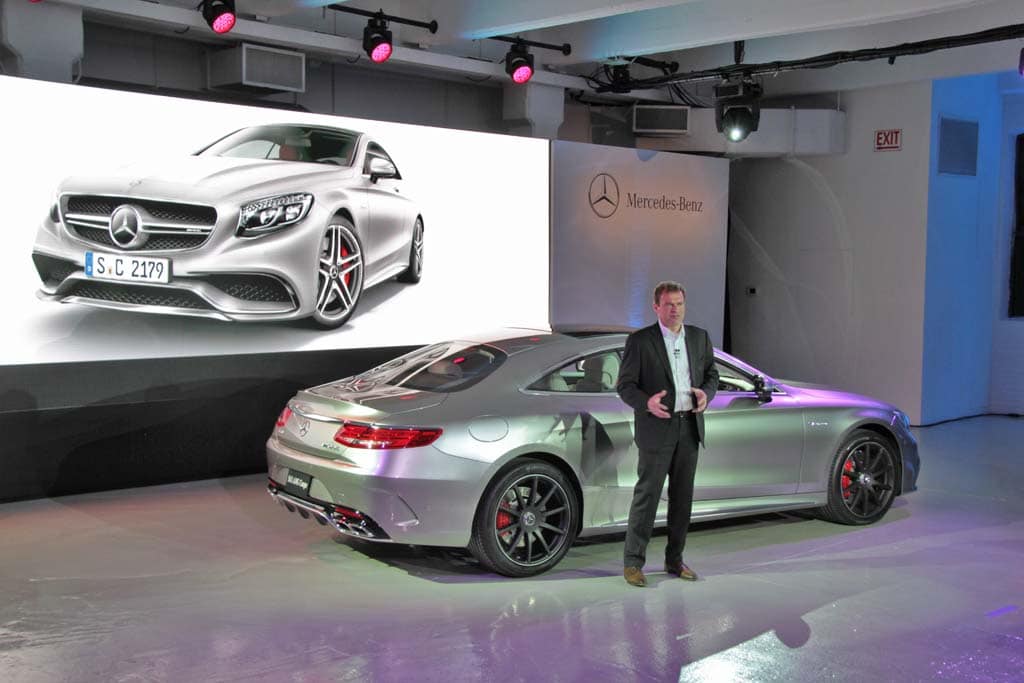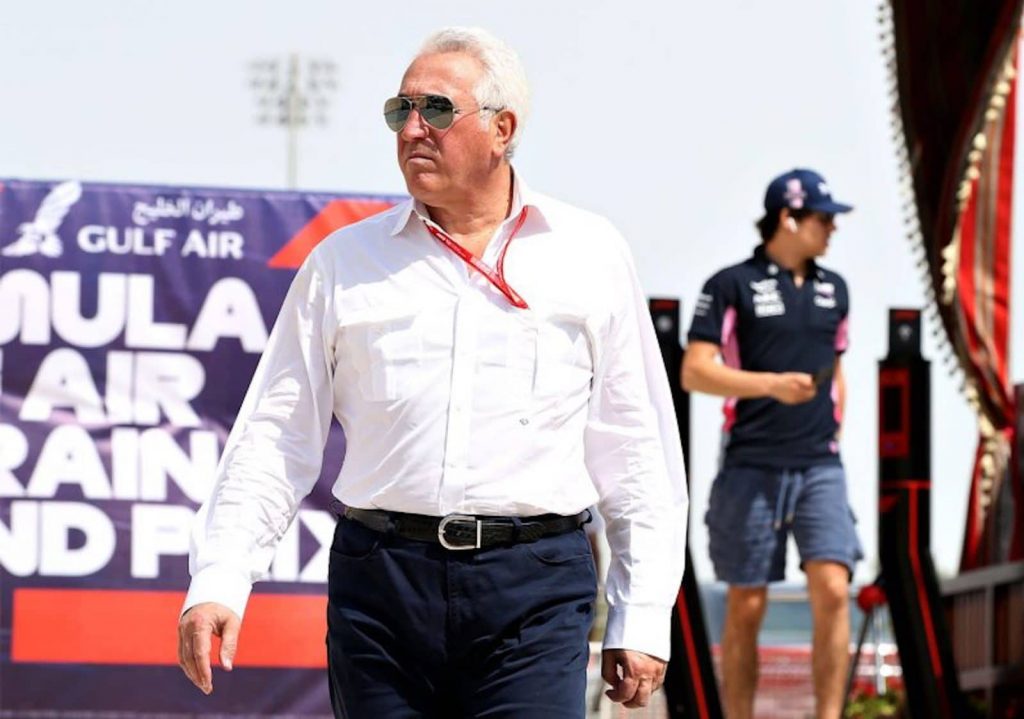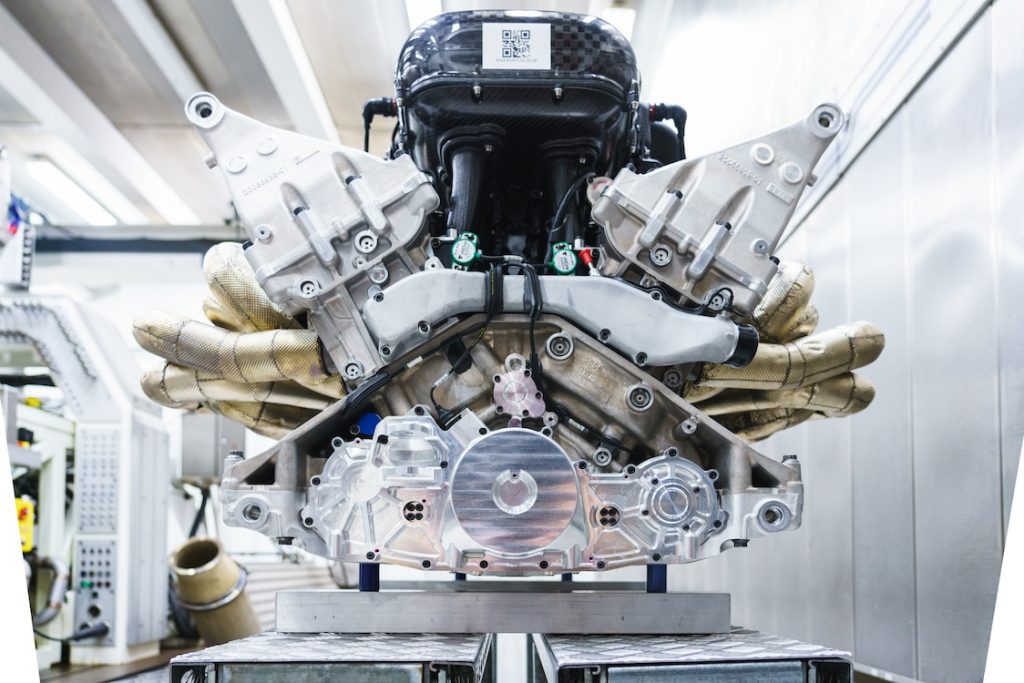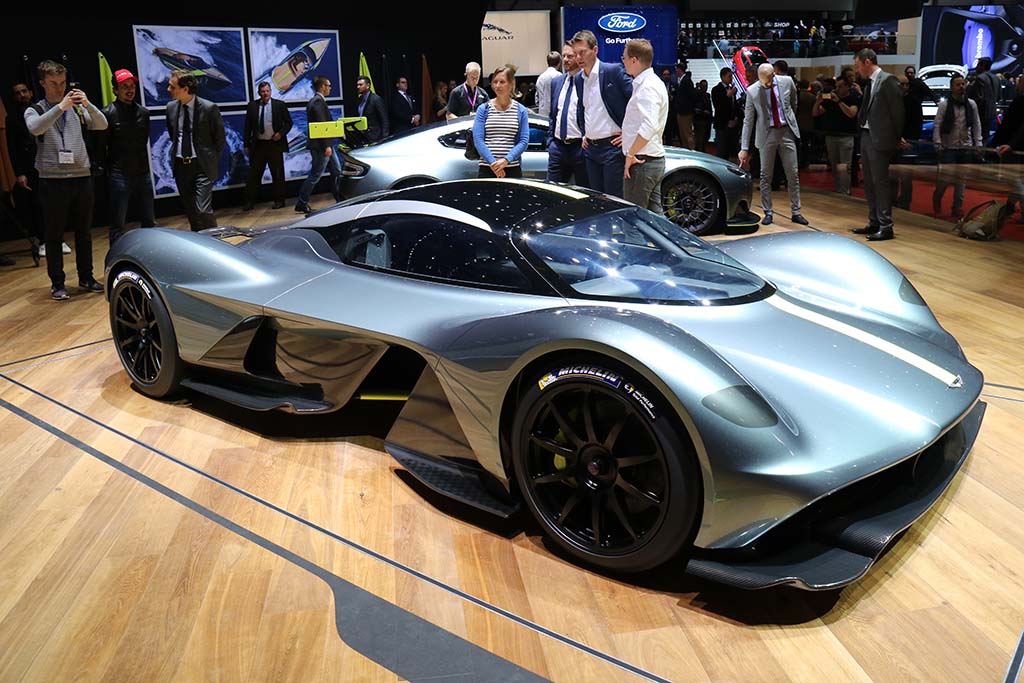Having been owned by any number of automakers and industrialists, Aston Martin Lagonda is once more getting a new lease of life.
The crisis-prone automaker barely skirted bankrupt for the eighth time last year, thanks to a cash infusion by Canadian billionaire Lawrence Stroll and an increase in Daimler AG’s equity stake to 20%, up from 2.6 percent.

This was followed by the August arrival of the firm’s newest CEO, Tobias Moers, the former chief executive officer of Mercedes-AMG.
A new chief executive and new goals
Moers came to Aston Martin Lagonda after more than 25 years at Daimler AG, most recently as Chairman of the Management Board, Chief Executive Officer, and Chief Technical Officer of Mercedes-AMG. During his tenure, Mercedes-AMG more than doubled its product portfolio and quadrupled the number of AMG units sold as part of a financially successful brand management strategy.
The move comes as Stroll, now Aston Martin Lagonda Executive Chairman, is looking to attain annual sales of 10,000 units, and achieve earnings of 500 million pounds, or $704.6 million, on annual revenues of 2 billion pounds, or $2.8 billion, by 2025. For now, merely securing a profit would be notable.

Aston Martin posted a first-quarter loss of 42.2 million pounds, or $59 million; that’s down from the 110-million-pound loss, or $153 million, from the same period last year. But revenue increased to 244 million pounds, or $340 million, a 153% increase year-over-year.
Action plan
The improving financial picture comes as Moers puts his plans into action by selling excess inventory, simplifying production, revising its product strategy, and entering into a technology agreement with Mercedes-AMG, which already supplies engines to Aston Martin, a point of contention with some brand enthusiasts, even though Aston Martin hasn’t designed and built its own engines from scratch since the 1960s.
“It is our obligation to fix the business and the company to get on a much more efficient level to produce and manufacture cars,” Moers said, during a recent interview with TheDetroitBureau.com from the company’s Gaydon, Warwickshire headquarters.
“A company like us, you cannot run your own electrical architecture, it’s impossible. You’re not going to be able to be pay the bill for that. A Vantage could give a good margin, but we have to fix the business around us.”

Moers is looking for the company’s production to be driven by demand, rather than wholesale supplying dealers with cars. “We started into the year close to 3,000 cars in stock,” Moers said, “and this is not good.”
This explains why Moers will be keeping its two production facilities, in Gaydon, England and Saint Athan, Wales, but closing Gaydon’s paint shop. Saint Athan’s shop is new and can handle 10,000 units a year — more than enough to accommodate the 4,000 vehicles a year Moers sees as the brand’s natural demand.
Looking ahead
Beyond what’s on the ground, Moers is streamlining future products by cancelling the hybrid V-6 planned for the Valhalla mid-engine supercar, and replacing it with a Mercedes-AMG hybrid electrified powertrain that will produce 1,000 horsepower.
The Valkyrie, powered by a Cosworth-built V-12, is expected later this year, along with a mild hybrid version of the DBX, followed next year by a high-performance variant. And look for the Vantage, DB11 and DBS to receive mid-cycle facelifts. Further out, the company is planning to produce a fully electric Aston Martin, as well as vehicles based on the DBX platform.

“It is not a challenge to bring all these products to life, that’s not the challenge,” Moers said. “But rebuild the brand and get a clear definition of what Aston Martin stands for? That’s one of the challenges, but we have a clear plan to do that.”
The new CEO said that the company’s IPO amidst crumbling finances caused consumers to doubt the firm’s continued existence, which is now assured, he said.
“The ultimate goal for us is turning Aston Martin into a self-sufficient company, a self-maintaining company. You can see the strength of the brand. Everybody knows what Aston Martin is; but what does Aston Martin stand for? For sure we could be Ferrari competitors, but I don’t want to talk about being a competitor. We have to define our own path.”
However, that path doesn’t include a takeover by Daimler.
“There is no hidden agenda. I’m not here because they’re going to the buy whole company; that’s not the reason I’m here,” Moers said. “There are some cars out there which we count as a true competitor; their life is a bit too easy at the moment.”
Look for that to change.